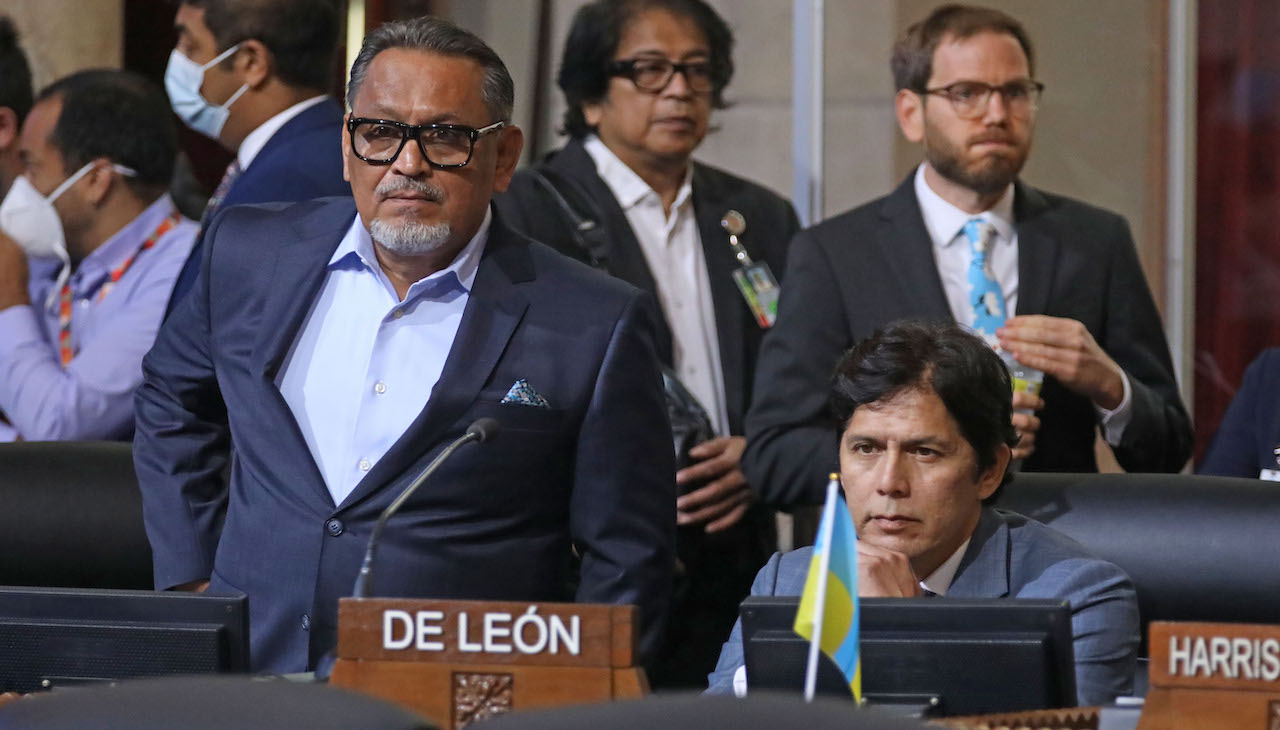
The future of L.A. politics after city council’s racism scandal
Dr. Manuel Pastor uses his years of teachings and research to talk about how Los Angeles history brought the city to its flashpoint last week.
Racist and derogatory comments made by now-former President of City Council Nury Martínez in a secretly-recorded meeting that also featured now-former head of the Los Angeles Labor Federation Union, and Councilmembers Gil Cedillo, and Kevin de León, made national headlines and brought droves of backlash and denouncements from not only other city officials, residents, and advocacy groups, but even President Joe Biden himself.
The scandal has opened many eyes to an issue that has multiple layers. With so much to unpack from the remarks made in the secretly-recorded conversation, there is much to say about the longstanding issue of racism and colorism within the Latino community.
There is also much to talk about in regards to how politicians think about one another, communities of color, specifically the Black community in relation to the brutal process of redistricting, and how the city is divided.
Part of what made the remarks concerning and even more shocking is because they came from Los Angeles, a hugely multicultural city that is according to the U.S. Census Bureau, over 48% Latino and over 8% Black.
To get an insight into how the city’s history played a role in the racism scandal, AL DÍA spoke to Dr. Manuel Pastor, Director of the Equity Research Center at USC, and Professor of Sociology and American Studies and Ethnicity at USC.
“I was dismayed, disheartened,” Pastor said of his initial reactions to the scandal. “More generally, I certainly saw immediately that this is something that's going to take decades of work, and much setback.”
Like a previous AL DÍA conversation with Fordham professor Tanya Kateri Hernández, Pastor also said the incident was a time to analyze and address anti-Blackness in the Latino community.
“For people swarming from the outside to report on this, there's a sense of ‘oh, we expected this to happen.’ Beneath this alliance, was significant tension,” he said.
That tension has some long history as both Black and Latino communities battled for their own spaces in society. In their collective plights, there was a need to work together.
“I don't doubt the dark tensions and conflicts,” said Pastor. “I think what is missed reported on is the long history of collaboration between black and Latino communities. Getting back to the 40s and certainly the 60s with its community based organizing, Black and Chicano power movements.”
The collaboration is discussed, at least in part, in Pastor’s book, South Central Dreams: Finding Home and Building Community in South L.A, which goes over L.A.'s demographic transition over the last half century from a majority Black to majority Latino neighborhood. When asked by AL DÍA, Pastor spoke on what is bred given that change.
RELATED CONTENT
“It has become a place where Black and Latino folks live in close proximity,” he said of South L.A. “As a result, those politics and density coalition, that certainly there are tensions, but it's also the case that if you're Black in South L.A., a lot of your neighbors are Latino. If you're Latino in South L.A. a lot of your neighbors, friends, teachers, political leaders are Black.”
There’s often common ground that can be found there, but it’s not the case in every neighborhood of Los Angeles.
“If you're in East L.A., if you're in the eastern part of the San Fernando Valley, that is heavily Latino, but without a big Black community significant time presence. One of the things that we looked at in the book is how in particular, young Latinos from South L.A., are frequently shocked by anti-Black sentiments of their cousins and uncles,” said Pastor. “That's the asymmetry of experience that definitely factors into political practice.”
Pastor also recently co-authored an op-ed in the L.A. Times that went over the Nury Martinez scandal through a similar lens of the plight for political power within communities of color.
Rather than consider the remarks made by the city officials simply be just a matter of tone or poorly chosen words, Pastor argued it is actually a case in which the four city officials let their frustration about Latinos specifically not having more power take over, and as a result, be convinced enhancing the Latino community voice required diminishing the Black community at the same time.
This is where redistricting comes in, and Pastor flips the script.
“One of the challenges of redistricting is it is a zero-sum game. There's a finite number of people, districts, and what districts gain. One of the points we were trying to make in the op-ed is that a lot of political progress for Latinos in terms of public policy issues has come from moments in which there are alliances in which it is not a zero-sum meeting, like raising the minimum wage, improving education in schools, and dealing with environmental injustice,” said Pastor. “I think that there's a sense that we could achieve a lot of Latino political aims, by frankly, enhancing Black political power, given the similarity of the agendas.”











LEAVE A COMMENT:
Join the discussion! Leave a comment.